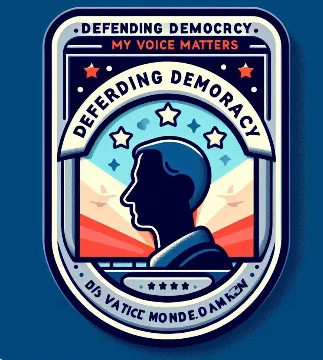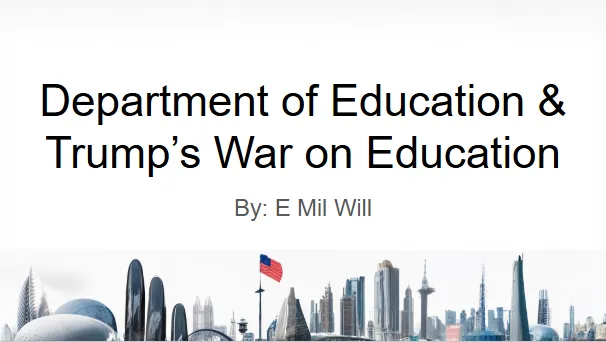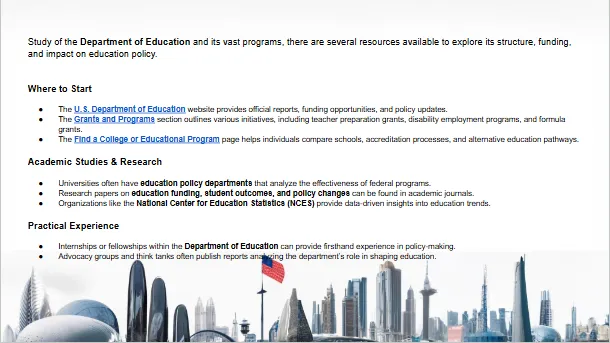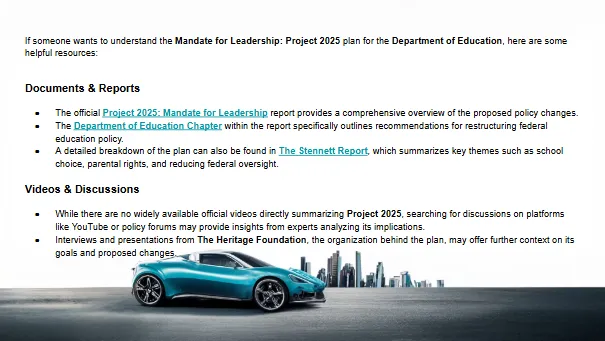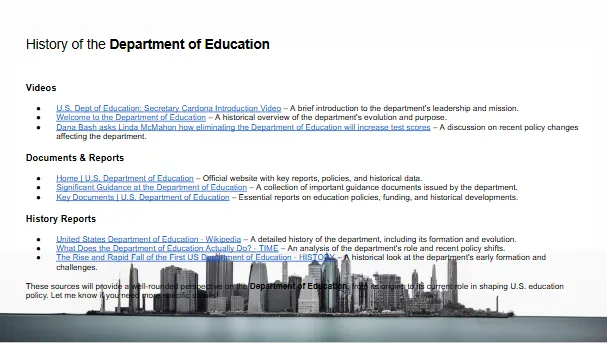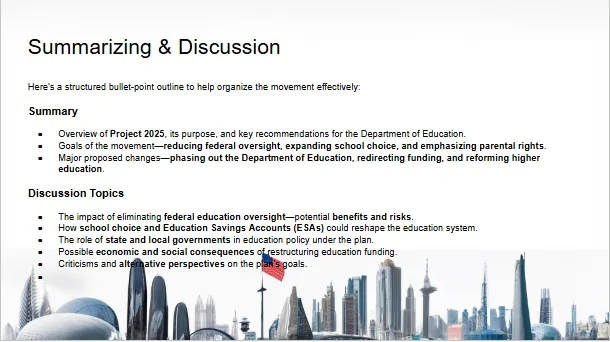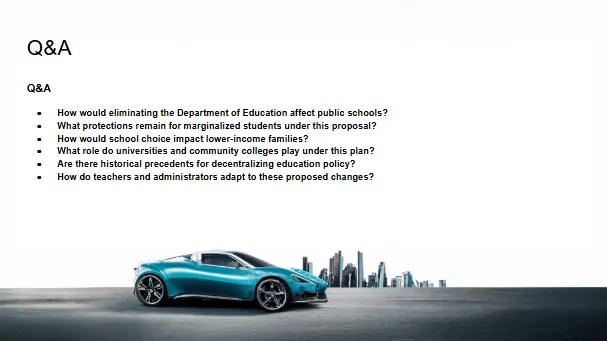UNDERSTANDING THE CONSERVATIVE PROMISE: MANDATE FOR LEADERSHIP
Project 2025 Watch
EXECUTIVE BRANCH
VS
CONSTITUTION
Chapter 16:
GENERAL WELFARE
DEPARTMENT OF INTERIOR
Review
Reading Mandate with Summary
Department of the Interior – A Mandate for Restoration and Reform

The vision presented for the Department of the Interior under a future conservative administration is one of aggressive decentralization, regulatory rollback, and resource development, all framed within a doctrine of federalist principles and economic revitalization—particularly for rural and western communities.
The document calls for:
Immediate reversal of Biden-era policies, including national monument expansions, environmental regulations, and land acquisition rules.
Restoration of Trump-era reforms to the National Environmental Policy Act (NEPA), Endangered Species Act (ESA), and Office of Surface Mining operations.
Enhanced autonomy for state and tribal governments, particularly in managing natural resources, regulating environmental standards, and ensuring economic self-sufficiency.
Rescinding and curtailing executive powers (e.g., repealing the Antiquities Act) to prevent what it sees as overreach through unilateral presidential designations of national monuments.
Empowering local communities—especially in Oregon, California, and Native American nations—to harvest, mine, and develop land as a matter of economic justice and legal entitlement.
A firm ideological stance that the federal government must return to its constitutional limitations and trust obligations, particularly toward American Indians.
The overarching goal is to reshape the DOI into a conduit for energy independence, reduced federal land control, expanded private-sector engagement, and prioritization of economic development over environmental preservation—unless the latter is locally managed or market-driven.
In essence, the proposed reforms seek to reassert control over federal land use policy, undermine judicial and bureaucratic environmental constraints, and decentralize power to states and local stakeholders, in a bid to reorient the Department of the Interior toward conservative economic, constitutional, and nationalistic priorities.
Chapter 16:
GENERAL WELFARE
DEPARTMENT OF INTERIOR
Review
PAGE 517-544
AUTHOR: Williams Perry Pendley
AUTHOR BACKGROUND CHECK:
William Perry Pendley is a conservative attorney and former Trump administration official known for his advocacy of public land privatization and deregulation. He holds B.A. and M.A. degrees in economics and political science from George Washington University and a J.D. from the University of Wyoming College of Law. Pendley served as a captain in the U.S. Marine Corps and held legal roles for Senator Clifford Hansen and the House Interior and Insular Affairs Committee. During the Reagan administration, he was Deputy Assistant Secretary for Energy and Minerals at the Department of the Interior, where he authored President Reagan’s National Minerals Policy and the Exclusive Economic Zone proclamation. He later led the Mountain States Legal Foundation, a conservative legal group, for nearly 30 years . (William Perry Pendley, William Perry Pendley, Secretary Bernhardt Applauds the President's Intent to Nominate William Perry Pendley to be the Director of the Bureau of Land Management | U.S. Department of the Interior)
In 2019, Pendley was appointed Deputy Director of the Bureau of Land Management (BLM) and served as its acting director without Senate confirmation. His tenure was marked by efforts to expand fossil fuel extraction and reduce environmental protections on public lands. A federal judge ruled in 2020 that he had served unlawfully for over a year, but Pendley continued in his role, asserting he had the confidence of the president and the secretary . As the author of Chapter 16 in the Heritage Foundation’s “Project 2025: Mandate for Leadership,” Pendley advocates for weakening environmental regulations, promoting resource extraction, and transferring federal land management to states and private entities. (Trump's public lands chief axed after court rules he was serving unlawfully, Project 2025)
Worst Implications for Trees, Oxygen, Water, and Food Quality
The proposals in the Department of the Interior chapter of “Mandate for Leadership: The Conservative Promise” signal a sharp shift toward resource extraction, deregulation, and weakening environmental protections. Below is an analysis of the most concerning environmental implications, ways to counter them, and why these reversals of Biden-era policies represent a regression for environmental progress.
1. Deforestation and Loss of Carbon Sinks
Impact: Reversing protections on National Monuments and expanding timber harvests on public lands (like the O&C lands in Oregon) will increase logging, contributing to deforestation.
Result: Fewer trees to absorb carbon dioxide and produce oxygen, worsening climate change and air quality.
2. Weakened NEPA Protections
Impact: Gutting the National Environmental Policy Act (NEPA) would reduce environmental impact assessments before projects like mining, drilling, or highway construction begin.
Result: More unchecked development can lead to deforestation, habitat loss, and pollution of air and water resources.
3. Water Quality Threats
Impact: Promoting mining and fossil fuel extraction, especially on tribal lands, risks contaminating rivers, aquifers, and wetlands with heavy metals, chemicals, and waste.
Result: Reduced access to clean drinking water, impacts on aquatic ecosystems, and increased risk of food and waterborne illnesses.
4. Air Quality and Public Health
Impact: Expanding coal production and cutting back on environmental enforcement may lead to increased emissions of sulfur dioxide, mercury, and particulate matter.
Result: More respiratory diseases, especially in frontline communities and children.
5. Food Quality and Agricultural Viability
Impact: Climate disruptions from deforestation and water mismanagement could destabilize growing seasons and degrade soil.
Result: Lower crop yields, more food insecurity, and less nutritious food.
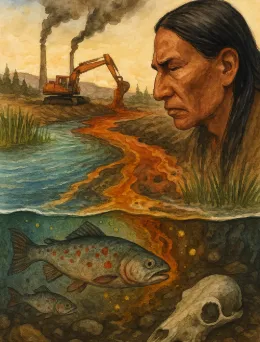
🛡️ How We Can Counter These Measures

1. Legal Challenges
Use courts to challenge deregulation that violates existing environmental laws like the Clean Water Act, Endangered Species Act, or NEPA.
Example: Conservation groups have already successfully sued to stop logging and pipeline projects that threatened ecosystems.
2. State and Local Leadership
States can pass stronger environmental protections, even if federal oversight weakens. California, for example, sets its own air quality and emissions standards.
Local governments can implement tree-planting programs, water conservation policies, and urban farming initiatives.
3. Public Pressure and Advocacy
Mobilize public opinion to oppose legislative rollbacks and pressure lawmakers to preserve environmental protections.
Promote awareness campaigns about the economic and health costs of environmental degradation.
4. Support Tribal Sovereignty
Support Indigenous nations’ fights to protect their lands from fossil fuel projects—they are often at the frontlines and have deep ecological knowledge
Help fund and amplify tribal conservation and stewardship efforts.
5. Invest in Green Infrastructure
Individuals and communities can invest in green energy, regenerative agriculture, urban tree cover, and sustainable water use.
Push for public and private partnerships that focus on climate resilience and equitable access to clean resources.
Understanding what this part of the Mandate means to you?
❓ Why Are These Plans to Reverse Biden Reversing Progress?
1. Biden’s Policies Were Centered on Climate and Public Health
Protected millions of acres through monument designations and land conservation goals.
Rejoined the Paris Agreement and prioritized net-zero emissions.
Strengthened NEPA and the EPA’s ability to regulate pollution.
Directed funding to environmental justice communities.
2. The “Mandate” Reversals Prioritize Short-Term Profit Over Long-Term Sustainability
The goal is to maximize resource extraction (oil, gas, timber) and minimize regulatory costs to industry.
It treats environmental safeguards as barriers to development, rather than investments in long-term human and ecological health.
3. Undermines Science and Public Oversight
The document promotes removing scientists with "ideological bias" (usually those who support conservation).
It seeks to end judicial review of environmental decisions and limit transparency on endangered species and environmental data.
4. Empowers Industry, Weakens Community Voices
By reducing public and tribal say in land use decisions, the plan hands over more control to private developers and extractive industries.
🌍 In Summary
The proposed rollbacks threaten not only wildlands but also the core life-support systems we depend on: oxygen-producing forests, clean water, safe air, and stable food supplies. While framed as pro-growth, these measures represent a retreat from global climate commitments, ecological stewardship, and equitable resource access.We can counter these threats through coalition-building, science-based policy, and local action—because healthy land and water are not partisan; they are survival.

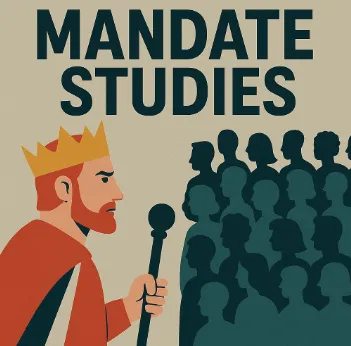
Understanding How the Mandate Effects Our Government by Sections of the Mandate
The following is a breakdown of the 900+ pages in a deeper breakdown of the authors, the standards, diagnosing the reforms, deep understanding of what our tax payer dollars provide and a deeper understanding of the deep Right. We do not have a deep Left issue, we have a issue with those who are lacking credibility with plans that are outlined in black and white. Instead of just living through the next 4 years, learn from America's Mistake for allowing nepotism to override political career morally sound individuals to decide people's fate versus those who are born of privilege. In these library of collective thoughts please feel free to join the movement...
Monitoring the Mandate by diving into the authors, contributors and current implementation of the project 2025 mandate created in 1978 first ran by Ronald Raegan with the Heritage Foundation.
Understanding the fundamentals of the Mandate by diving into the theories, philosophies and breakdowns from the section "Taking the Reins of Government" with break downs from
Understanding the fundamentals of the Mandate by diving into the theories, philosophies and breakdowns from the section "The Common Defense" with break downs from:
Understanding the fundamentals of the Mandate by diving into the theories, philosophies and breakdowns from the section "The General Welfare" with break downs from:
Understanding the fundamentals of the Mandate by diving into the theories, philosophies and breakdowns from the section "The Economy" with break downs from:
Understanding the fundamentals of the Mandate by diving into the theories, philosophies and breakdowns from the section "Independent Regulatory Agencies" with break downs from:
Understanding the fundamentals of the Mandate by diving into the theories, philosophies and breakdowns from the section "Onward" with break down and final thoughts on project 2025:
Understanding the Mandate , What it means to you and how can we grow from learning it.

Stand up for US Department of Education Against Project 2025 Mandates
The future of education is at a crossroads, and the Department of Education plays a vital role in ensuring access to quality learning opportunities for all. However, proposed policies threaten to dismantle essential programs, impacting students, teachers, and communities nationwide. By joining together, we can advocate for a strong, well-supported education system that prioritizes inclusivity, innovation, and success. Whether through raising awareness, participating in discussions, or pushing for informed policies, every effort counts in safeguarding the integrity of public education.
This is a call to action for educators, advocates, and concerned citizens to come together and make a difference. Through collective knowledge and active engagement, we can challenge harmful reforms and champion initiatives that strengthen the Department of Education. The upcoming virtual workshop on April 21-23 will provide key insights into these urgent matters, equipping participants with the tools to take action. Let’s stand for the future of education—because protecting learning today ensures a brighter tomorrow for all. Join us in this mission and help drive meaningful change!
Power Point For 3 Day Workshop 6pm-8pm April 21-23, 2025
Understanding the Mandate Which Touches the Following
The following is a breakdown of the 900+ pages in a deeper breakdown of the authors, the standards, diagnosing the reforms, deep understanding of what our tax payer dollars provide and a deeper understanding of the deep Right. We do not have a deep Left issue, we have a issue with those who are lacking credibility with plans that are outlined in black and white. Instead of just living through the next 4 years, learn from America's Mistake for allowing nepotism to override political career morally sound individuals to decide people's fate versus those who are born of privilege. In these library of collective thoughts please feel free to join the movement...
Executive overreach redefining the Constitution and it's relationship with the other branches
The Common Defense Outlining the Agency Roles
US Press
International Press
The Economy Outlines the Roles
Case for Fair Trade
Case For Free Trade
The Independent Regulatory Agencies Outlines the Roles For Agencies
The propose for this Summary is in an attempt to allow others to understand that this mission statement known as the Mandate is different than just a political movement. This movement purpose is not meant to help those who it claims to and we would argue that their Mandate has and will do damage to our world. This has been a journey of exploration, interesting, hypocritical, short sighted and often times cruel in nature.
Small Call to Action Headline
Small Call to Action Headline

Website Development
Custom Website DesignResponsive Web DevelopmentUser Experience (UX) DesignE-commerce Website DevelopmentContent Management System (CMS) Integration

Dev Development
Full-Stack DevelopmentFrontend DevelopmentBackend DevelopmentAPI Development and IntegrationDatabase Design and Management

Scrum Master Services
Agile Project ManagementScrum Master ConsultationSprint Planning and ExecutionTeam Collaboration and CoordinationContinuous Improvement Strategies
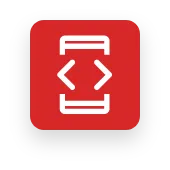
Mobile App Design
iOS App Development
Android App Development
Cross-Platform App Development
Mobile App UI/UX Design
App Maintenance and Support
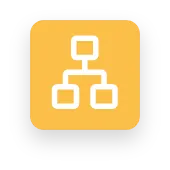
Online Marketing
Search Engine Optimization (SEO)Social Media MarketingContent MarketingEmail MarketingPay-Per-Click (PPC) Advertising

Drone Services
Aerial Photography and VideographyDrone Mapping and SurveyingInspection and Monitoring ServicesGIS (Geographic Information System) IntegrationCustom Drone Software Development
“ eMillion Concepts. eMillion People. eMillion Solutions.”
© 2024 E-Millions Consulting Services - All Rights Reserved,
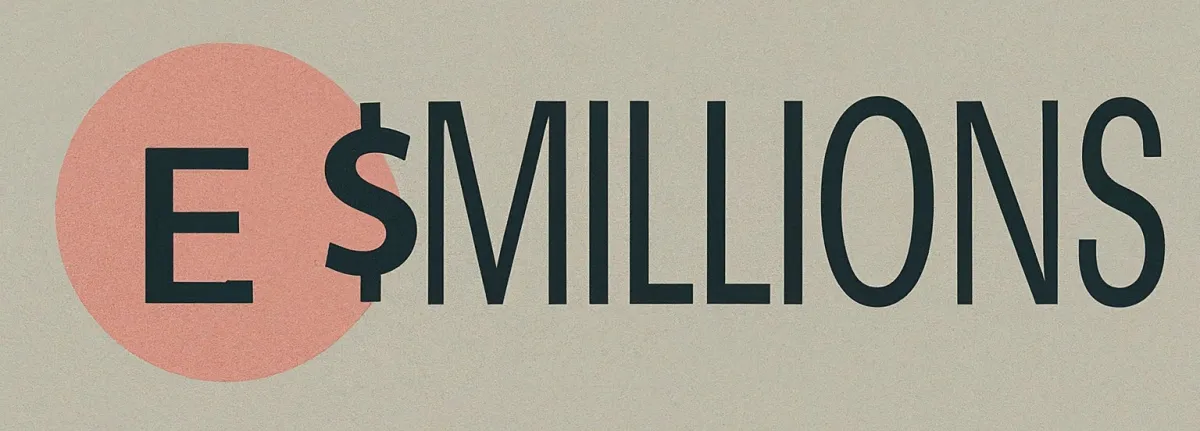
etechmilli@gmail.com
(404) 723-3940
© 2026 Company Name - All Rights Reserved, consectetur adipiscing elit. Maecenas commodo suscipit tortor, vel tristique sapien

